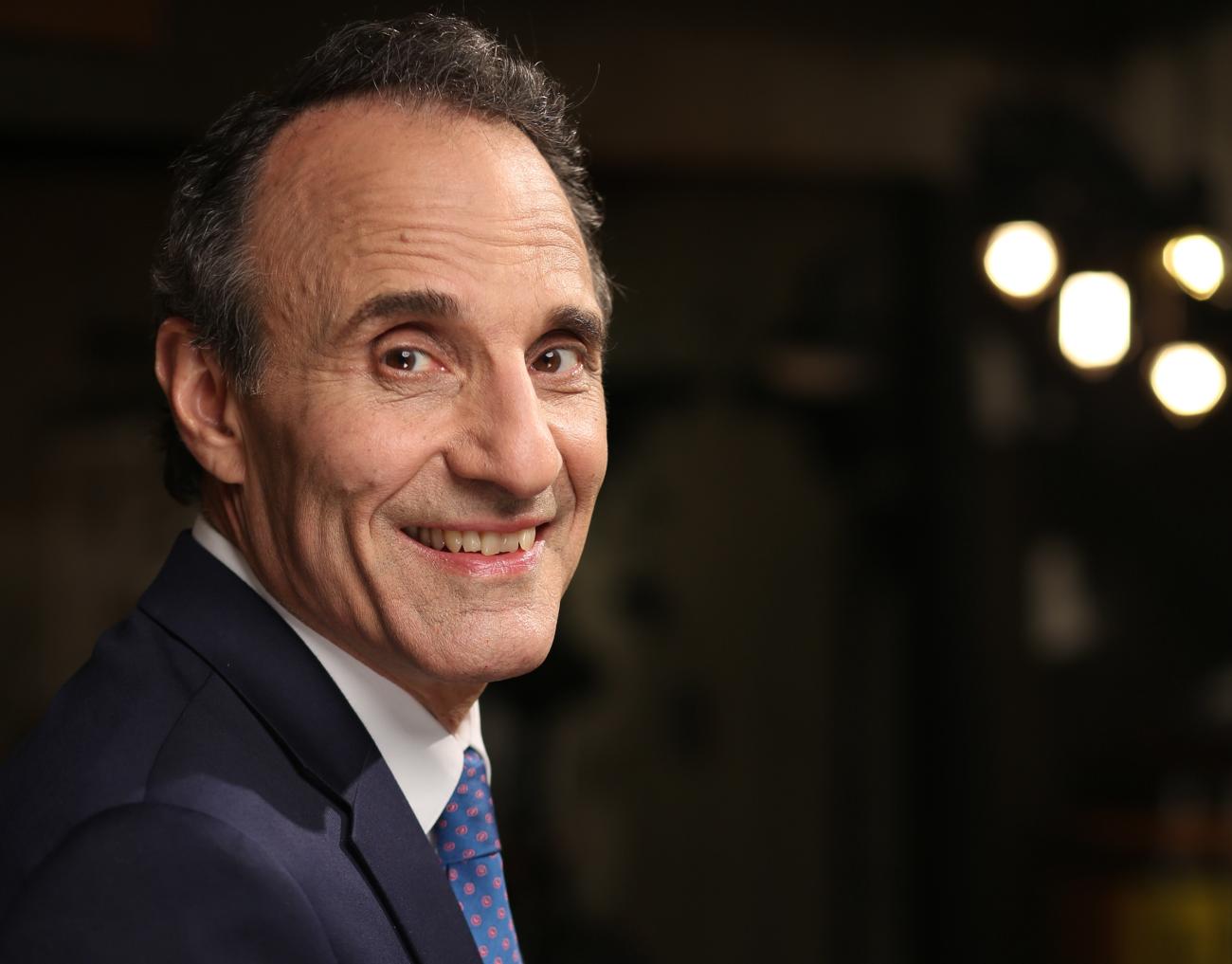Palma
Composer and professor Paul Salerni showcases "Palma," the third piece in a trilogy of fable-inspired works
In celebration of their 50th anniversaries, WVIA Radio and The Northeastern Pennsylvania Philharmonic jointly commissioned and presented on November 4 the world premiere of Palma, a fable for narrator, young string players, young chorus and symphonic orchestra with music by Paul Salerni and text by Dana Gioia.
Premiering at the Scranton Cultural Center, this newly commissioned selection completed a trilogy of fable-inspired works by Salerni, who is the NEH Distinguished Chair in the Humanities at Lehigh and director of the Lehigh University Philharmonic. The work features the main character, Palma, who struggles to make a living tilling the soil but loves to play music on a cherished and magical violin. Set long ago in Italy, Palma is named after Salerni’s mother, who was born in Carbondale, a mining town in the Scranton/Wilkes-Barre region.
Salerni says the idea for Palma had been percolating since 2016 while he was on academic leave. It was left unfinished because he didn’t think he would have an opportunity to have it performed. A year ago, WVIA program director Erica Funke suggested commissioning a new work as a salute to the station and its popular collection of programming serving northeast Pennsylvania. After discussing the commission with Funke, Salerni realized Palma would be the ideal piece and finished the work in six months.
Salerni loves Italian fables, and his previous two are titled The Big Sword and The Little Broom and The Old Witch and the New Moon. Palma had Salerni collaborating with Gioia, the former Poet Laureate of California and Chairman of the National Endowment for the Arts. Gioia had written the texts for the narratives of the two previous fables. That’s not all they have done together. Salerni’s one-act opera Tony Caruso’s Final Broadcast, with a libretto by Gioia, won the National Opera Association’s Chamber Opera competition. Salerni and Gioia have written a second one-act together (Haunted), and Salerni has set 15 of Gioia’s poems to music.
“I said, ‘Dana, they want me to write a piece, and I want to do another Italian fable.’ This fable actually comes from the region from which my paternal grandparents emigrated (the Abruzzo). The original version in Italo Calvino’s collection is called Joseph Ciufolo. I wanted to have a female protagonist because I wanted to name the piece after my mother,” he says. “So, Dana modified the narrative and wrote the words that the chorus would sing.”
Salerni is bringing Palma to Lehigh February 16 for performances by the Lehigh University Philharmonic in Zoellner Arts Center. The performance that night will include all three Italian fables and also feature violinist Diane Monroe, who is one of the Music Department’s Horger Artists-in-Residence.

